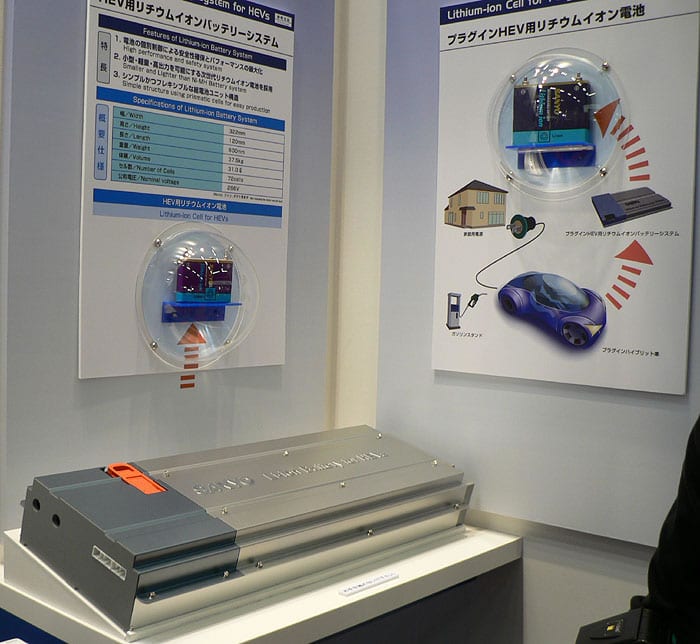It’s not tool batteries, but anyone who’s been following ProToolReviews for any amount of time knows that we’ve got our eyes and ears tuned to news in the lithium-ion market, especially when it comes to price drops or performance boosts. Bloomberg posted a news brief about how Sanyo Electric (currently the largest manufacturer of rechargeable batteries and supplier to several major tool companies) indicated that it plans to slash the cost of manufacturing lithium-ion batteries for hybrid and electric vehicles to less than half industry norms in just five years.
An executive officer for Sanyo’s hybrid electric vehicle division apparently told reporters that the company is planning to lower the cost to less than $0.62 per watt hour by 2015 (the industry average is $1.23/Wh).
Tech Note: The watt-hour (Wh) is a unit of energy equivalent to one watt (W) of power expended for one hour (h) of time. An energy expenditure of 1Wh represents 3600 joules (3.600 x 103 J). To obtain joules when watt-hours are known, multiply by 3.600 x 103. To obtain watt-hours when joules are known, multiply by 2.778 x 10-4
Sanyo’s Kasai plant added facilities in July to boost their capacity to manufacture lithium-ion car batteries 11-fold to 1.1 million a month, and they have plans to go as high as 1.5 million units a month if they make further modifications.
This type of aggressive pursuit of reducing the costs, and increasing capacity of lithium-ion mass production will only serve to help the price of technology to drop in other form factors and platforms as well. It may not be long before tool batteries are half the cost or less as current models and, as a result, prices drop. In fact, this kind of needs to happen in the automobile industry or we will be facing an oversupply of lithium-ion, the likes of which will resemble the tech and housing bubbles. With the technological advances, “side”-uses for tools and consumer electronics, and increased demand due to price drops, the sky’s the limit.
Source: Bloomberg



